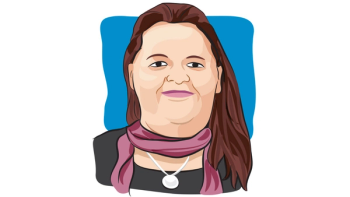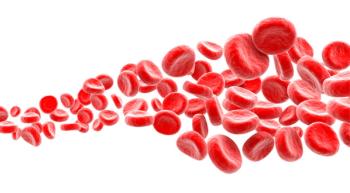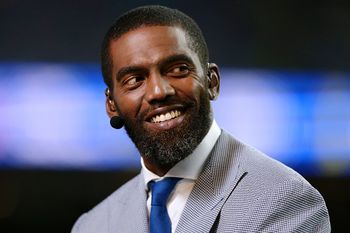
Tips for Championing Chemo for Non-Hodgkin Lymphoma
Transcript:
Loretta J. Nastoupil, MD: What resources would you recommend to patients, outside of their oncologist’s office, that were useful to you?
Whitney Neighbors: Oh, wow. I spoke to a nutritionist. They have a nutritionist at MD Anderson Cancer Center, which I found helpful, but I also had an opportunity to interview with two other nutritionists who gave me similar but different perspectives on things that I could do, such as change my diet. I was able to take that information and see what I could tolerate from a change perspective. The side effects that I experienced mostly had to do with my gastrointestinal tract. That was a bigger piece for me. Changing my diet and reading up on the symptoms or side effects that I was having and practicing different nutritional things helped me significantly.
So, I spoke to a nutritionist. Secondly, I sought out acupuncture, which is a little outside the box. You and I had talked about whether or not this was something that I could tolerate. I think it has helped me sort of manage the overall fatigue, which has had a large impact on me every time I get treatment. It has also helped with some other things that I’ve had — some loss of muscle tone and some back pain and things like that. I find that acupuncture has helped with that and with headaches that would come on while I was adjusting to the medication. I tried to also incorporate my diet to help with my headaches. I’ve also incorporated a physical therapist to help me to maintain my muscle tone. You are tired and you can’t do as much. Being able to continue to use your body, even though it’s hard, can have a tremendous impact on how you rebound after the cycle of the drug goes through you.
There’s a resource at MD Anderson Cancer Center, the Integrative Medicine Center. They offer meditation courses and things like that. Those are very helpful. The one that I attended that was very impactful was a course where everyone shared their stories. It was great to be able to hear about the experiences of people that don’t have the same journey as you but a different journey. Some are successful; some journeys are harder than others. It was very helpful to be able to be in that setting with everyone, to talk about our stories and clear your head and get comfort from each other. So yes, I did sort of go outside of the box of medicine, per se, to find other things that could help me manage treatment and side effects.
Loretta J. Nastoupil, MD: I applaud that. The other thing that was critical about how you did this is, you kept me informed the whole time. I learned through your experiences. Sometimes there is a perception that as oncologists we’re so focused on side effect management, such as for nausea, risk of infection, constipation, numbness and tingling, that we don’t always encompass some of these integrative approaches. You did a fantastic job of doing some of the research yourself and using the resources that were available to you at MD Anderson Cancer Center. I think you did a very good job at attacking some of these symptoms that are also very common, like fatigue, headaches, muscle loss — even better than what I could have guided you with.
Whitney Neighbors: Thank you.
Transcript Edited for Clarity




